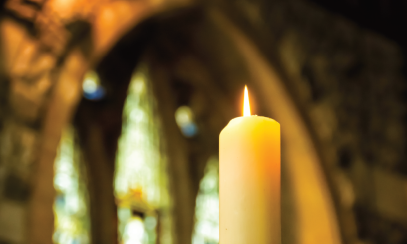Am I failing to honor my mother by putting her in a nursing home?
Dear Fr. Joe: I feel guilty about putting my mother in a nursing home. Am I failing to honor her by doing this? How do I make this decision?
Dear Fr. Joe: I feel guilty about putting my mother in a nursing home. Am I failing to honor her by doing this? How do I make this decision?
This is a tough one, and the fact that it is a difficult decision for you is a good sign that you want to respect and honor your mother. I often remember the words of St. Francis DeSales who says that the desire to love God is, in fact, loving God. In the same way, your desire to honor your mother is probably your first sign that you are doing so.
Often times, though, our desire to do well bumps into the practicalities of living in “the real world.” So, how do we know the right thing to do?
As is our custom as Catholics, let’s jump right into the Catechism of the Catholic Church. This is a rather long quote, but well worth reading:
“The family should live in such a way that its members learn to care and take responsibility for the young, the old, the sick, the handicapped and the poor. There are many families who are at times incapable of providing this help. It devolves then on the other persons, other families, and, in a subsidiary way, society to provide for their needs: ‘Religion that is pure and undefiled before God and the Father is this: to visit orphans and widows in their affliction and to keep oneself unstained from the world.’” (CCC 2208, cf. Jas 1:27)
Let’s take that apart. First of all, in the church’s mind, it seems that before this decision is made, a lifestyle must be lived that teaches children in the home that it is our duty to care for those who are incapable or limited in their ability to care for themselves. This is an important idea and, hopefully, a challenge to parents to take time out of their own busy schedules to teach their children through example and practice how to care for others. Readers, when is the last time we took our children to a soup kitchen? When is the last time we brought food to a homeless shelter? When is the last time we delivered DoubleStuf Oreos® to priests who write for magazines? (Where did that come from?) Hopefully, this type of behavior lays a foundation for our young people to see that caring for others is a top priority for a Catholic family.
Once we have done that, then our extremely difficult decision to place a loved one in a nursing home is an expression of an attitude that we have shown our children over and over throughout their lives: sometimes, our support and honor of the dignity of the human person translates into placing them with those who can care for them best. In this day and age when people are living longer, this seems to happen more often.
So, in the end, it seems to me that there will be times when our ability to care for someone we love is not equal to the care they need. When that happens, it may be time to place them in a nursing home that will give them the love and care they need. However, when that happens, our responsibilities do not end.
Truth be told, I have been to many nursing homes in my day. I have seen the best possible scenarios and some pretty bad ones as well. What makes the ultimate difference for those who must live there? It is not always the way the nursing home is run. Instead, the experience is usually positive or negative based on whether or not the family comes to visit. Moms, dads, brothers, sisters, grandchildren, nephews and nieces – all of them – should inundate residents with love and affection. Remind them of their importance as human beings. Thank them for their contributions to our lives. Ask about those stories they are so famous for. Play cards, checkers, everything. Once the decision is made to place a loved one in nursing home care, we must constantly pester those who love them with requests to visit.
Even then, our responsibilities do not end. We must next move outside of our family life and look at the life of our country. Politically, we are called to care for the elderly as well. All of this ties into the “seamless garment” of the “culture of life” that our Holy Father speaks about. We must be politically aware of those who will seek to make life better for those who struggle in society. We must truly be “pro-life” in our voting and support – or non-support! – of political candidates. In my mind, it begins with supporting those who protect and defend life from the moment of conception until natural death – which includes everything in between. By the way, a candidate who wants to throw money at a problem is not necessarily acting in the best interests of those who have the problem.
Finally, let’s all remember to pray for those who are alone, sick, alienated and in need of help. This is always the first and best course of action.
Enjoy another day in God’s presence!



